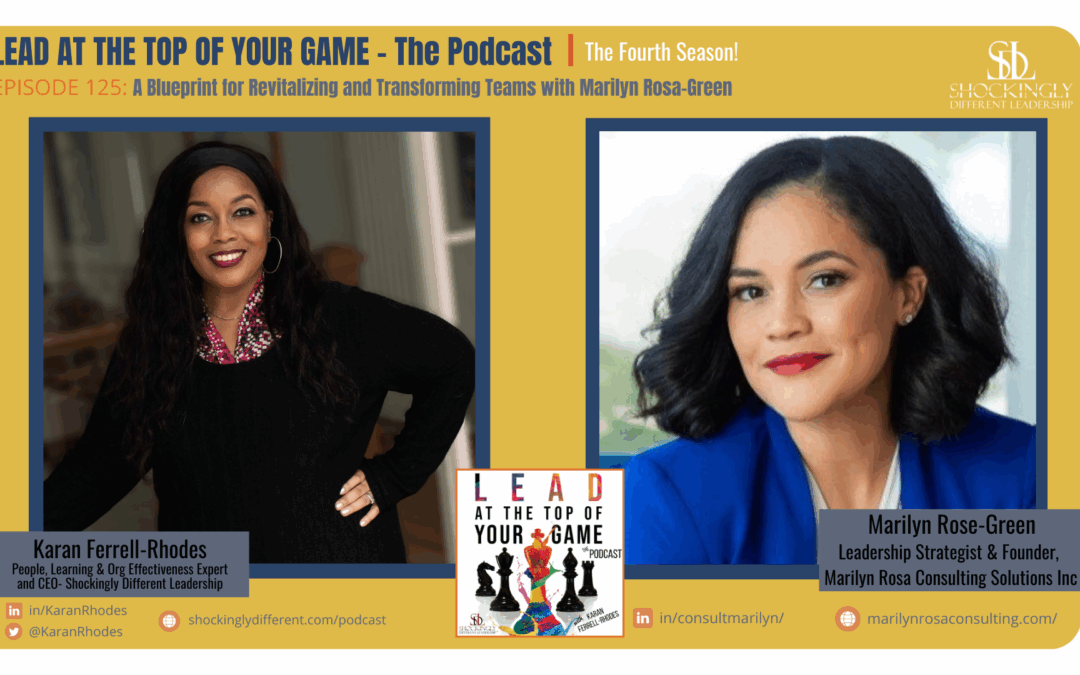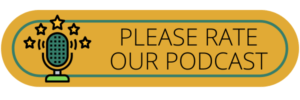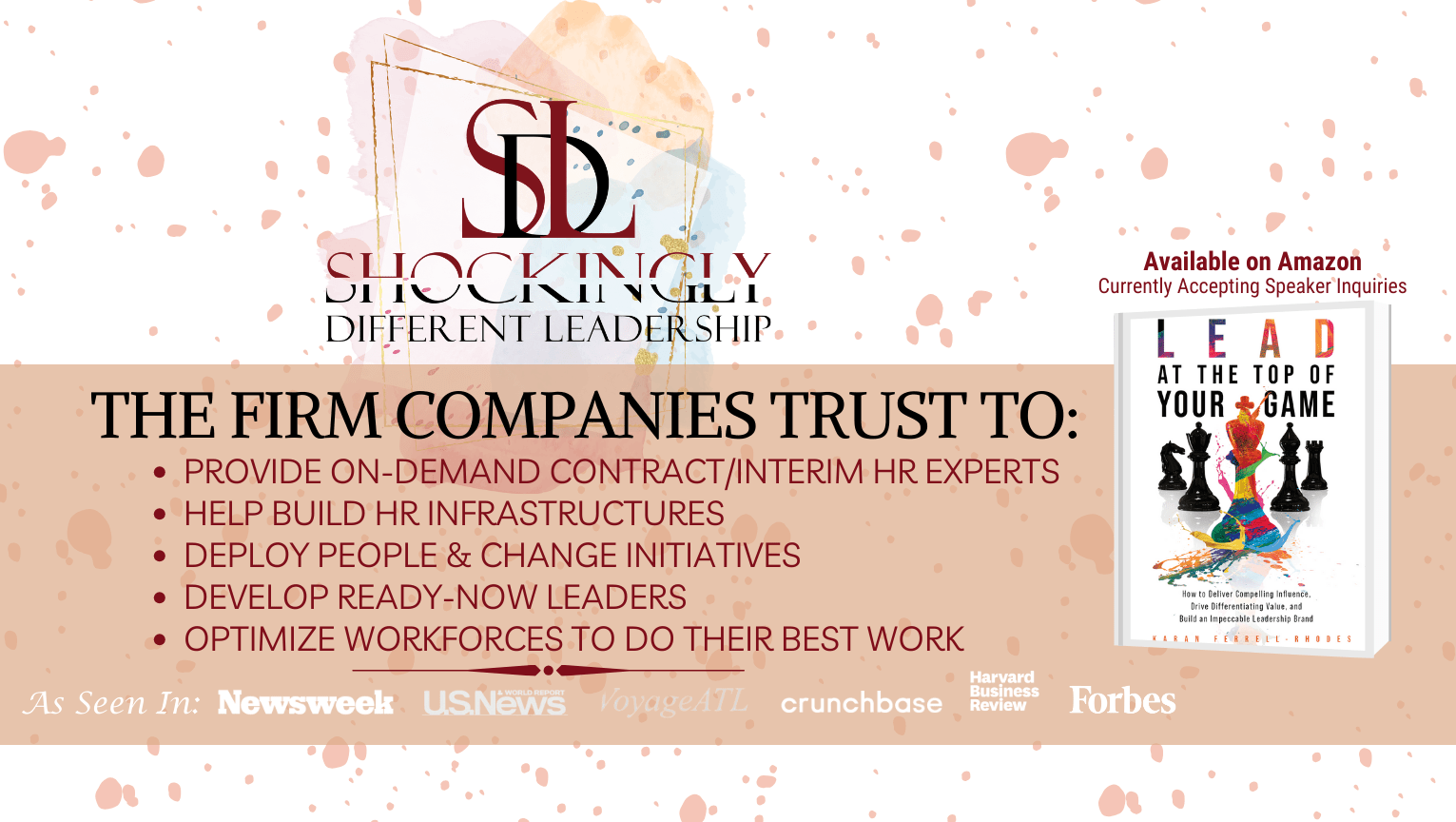IN THIS EPISODE, KARAN FERRELL-RHODES INTERVIEWS MARILYN ROSA-GREEN.
In this conversation, Marilyn explores leadership challenges in manufacturing. She stresses the need for careful talent selection and a supportive environment to combat burnout, identifying behavioral changes and emotional responses as key warning signs. Marilyn also delves into resilience, viewing it as a mix of innate traits and learned behaviors.
Marilyn emphasizes that resilience can be cultivated through mindful leadership and stress management practices. She offers practical coping strategies, like mindfulness and avoiding perfectionism, encouraging small, manageable steps to enhance well-being and performance in high-pressure settings.
Marilyn Rosa-Green is an executive leadership coach and psychotherapist with deep expertise in guiding leaders in the manufacturing industry.
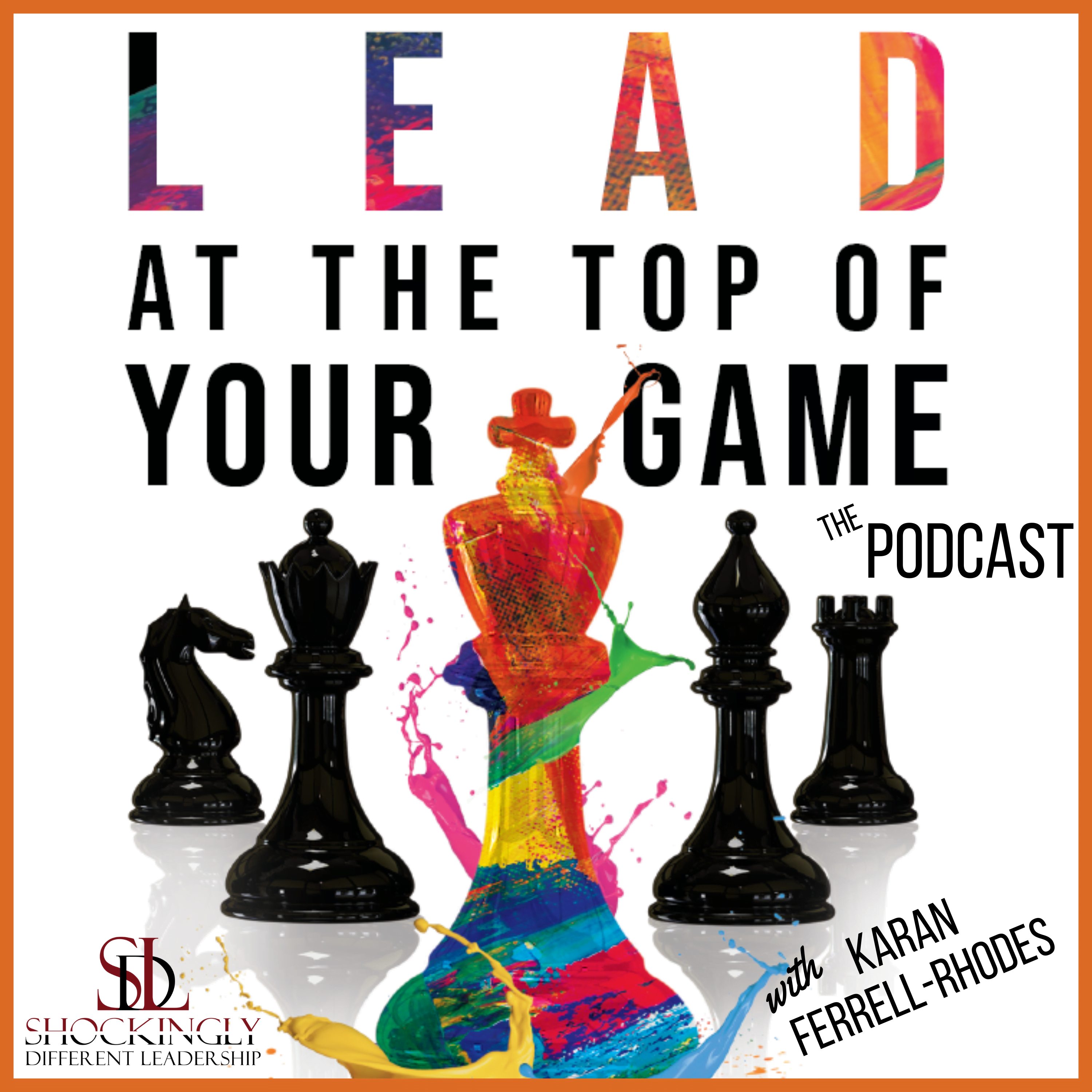
Posted by
SDL Media Team
Rather view our video podcast?

WHAT TO LISTEN FOR:
- What challenges do leaders face in the manufacturing industry?
- Why is burnout common in manufacturing environments?
- How can leaders identify signs of burnout in their teams?
- What impact does burnout have on team performance?
- How can resilience be developed in the workplace?
- Why is mindfulness important for managing stress?
- What role does perfectionism play in stress and burnout?
- Why is mental health important in leadership roles?
“Some events in your life have impacted the way you see the world.”
FEATURED TIMESTAMPS:
[02:16] Life Outside of Work
[04:48] Professional Journey and Career Milestones
[12:47] Signature Segment: Marilyn’s entry into the LATTOYG Playbook: Challenges and Strategies in Manufacturing Leadership
[17:13] Resilience and Coping Strategies
[24:11] Signature Segment: Marilyn’s LATTOYG Tactic of Choice: Leading with Intellectual Horsepower
[25:59] Connect with Marilyn

ABOUT MARILYN ROSA-GREEN
Marilyn Rosa-Green is an Executive Leadership Coach and HR Strategist who specializes in food and beverage manufacturing expansion planning. She combines her deep expertise in HR and Clinical Mental Health Counseling to foster positive organizational changes. Her educational background includes a Bachelor’s in Psychology, a Master’s in Human Resource Management, and an M.Ed. in Clinical Mental Health Counseling.
Her proprietary Manufacturing Success Accelerator program has transformed team dynamics by addressing challenges like lack of accountability, unhealthy culture, high turnover, and communication breakdowns. This innovative 4-key system optimizes front-line leadership and talent acquisition and enhances training and career development initiatives. Marilyn’s holistic approach has empowered organizations to shift towards people-centric and transformational leadership cultures to achieve high engagement and sustainable growth. Outside of her professional endeavors, she enjoys a peaceful life on her Kansas farm with her family.
LINKS FOR MARILYN:
- Website: marilynrosaconsulting.com/
- LinkedIn: linkedin.com/in/consultmarilyn/
ADDITIONAL RESOURCES FOR YOU:


Episode Sponsor
SDL is the go-to firm companies trust when needing to:
- supplement their in-house HR teams with contract or interim HR experts
- implement leadership development programs that demonstrate an immediate ROI and impact on the business

Episode 125 | A Blueprint for Revitalizing and Transforming Teams with Marilyn Rosa-Green
Marilyn Rosa-Green 00:00
You figure things out, really, for the most part, I guess what I’m trying to say is, there’s a lot of seasons in manufacturing where you have to work six, seven days a week or and it really doesn’t matter, like, Which level you’re you’re in, and there’s, there’s a lot of demands about the business itself, even if you have a somewhat okay work life balance, that can be very it’s very high pressure. You know, if something breaks down, I mean, it could cost the company millions. You know, if you have a shutdown, if you have an audit, I mean, all, there’s so many different pieces of this,
Voiceover 00:05
Welcome to the “Lead at the Top of Your Game” podcast, where we equip you to more effectively lead your seat at any employer, business, or industry in which you choose to play. Each week, we help you sharpen your leadership acumen by cracking open the playbooks of dynamic leaders who are doing big things in their professional endeavors. And now, your host, leadership tactics, and organizational development expert, Karan Ferrell-Rhodes.
Karan Rhodes 00:36
Hello again, my superstars. This is Karan, and welcome to another episode of the lead at the top of your game podcast we are just absolutely thrilled to have on today’s show Marilyn Rosa-Geen. Now Marilyn is an executive leadership coach, psychotherapist and founder of Marilyn Rosa consulting Solutions Incorporated, and she specializes in supporting manufacturing companies and their leaders in a wide variety of areas. So you know, manufacturing is a very unique industry of focus, and she is a true expert in this realm, and we knew we just had to spotlight her on today’s show. So welcome to the podcast. Marilyn,
Marilyn Rosa-Green 01:19
Hello, hello. Thank you so much for having me today. I’m excited.
Karan Rhodes 01:23
We are so excited to have you as well. So Marilyn, before we talk a bit more about your your background and quite a few topics, I can’t wait to delve in. We always love to learn just a little bit more about our guests. So for just as much as you feel comfortable, would you mind giving us a sneak peek into your life outside of work.
Marilyn Rosa-Green 01:42
Yeah, absolutely. So I live in the middle of nowhere on a farmhouse. We have a few acres, and my husband has a couple of greenhouses. He’s in the landscape and hardscape business, and he loves plants, and so I It’s my little oasis there. I get to go on walks, and even if it’s winter, it’s 80 degrees in there, so it’s beautiful, and might get some chickens here soon, just, you know, just having a very peaceful, different life than my city, like life that I had in Boston many years ago. So yeah, we just like to spend time with family, and we’re both business owners, and, yeah, it’s that’s pretty much. That’s really I lay low these days.
Karan Rhodes 02:30
Well sometimes, you know, and we have different seasons of our life, and this time of laying low, it sounds like it agrees with you very, very well. And I will share, although I am in the big city of Atlanta, not as big as New York or Boston, obviously. But in Atlanta, my indulgence in nature, I have inorganic garden in the back and so that brings me a ton of peace gardening.
Marilyn Rosa-Green 02:54
Yeah, yeah,
Karan Rhodes 02:54
You know, hearing the birds and nature out there. So that is my little heaven at home.
Marilyn Rosa-Green 03:02
Yeah, yeah. And I guess I didn’t, so I’m outside of Wichita, Kansas, but yeah, we live in the country, and technically we’re not even part of like a city, so it’s really interesting, but it’s fun, and it’s very peaceful. And the beautiful thing about it is the sunset, something that I never really even paid attention before, but now it’s just such a beautiful, beautiful thing that, you know, it’s, I’m gonna miss it when, when we’re not here anymore, because we got some plans in the future to to move, but I don’t know, we’ll see. We’ll see. But this is definitely a season to for me to I have found my peace, and I’ve been laying low, but, yeah, it’s been beautiful,
Karan Rhodes 03:44
Awesome. Well, thank you so much for sharing that is so unique, and continue to enjoy it until you can’t, because you know
Marilyn Rosa-Green 03:53
Certainly
Karan Rhodes 03:53
All right. Well, let’s go ahead and kind of jump into the meat of our conversation, but I would love to first start off by letting you just share with us at a high level, some key milestones in your professional career, and then can you end with sharing with us why you decided to start your firm?
Marilyn Rosa-Green 04:14
Yeah, absolutely. So I help manufacturing leaders and business owners so so any people in senior leadership who are overwhelmed and burnout and stressed and have many, many people in their teams that are struggling, I help them with establishing strategies to create wellness and focus on well being with their employees and Create team cohesion, and it’s a an amazing way for me to blend my psychology background and my leadership development background. And you know, I was in HR and right in the trenches in manufacturing for many years. And so I was the person, the go to person in HR that people went and shared. Shared their their struggles, their stories of burnout, their I need help, you know, just anything small, from, I don’t know how to download the self service app on my phone to, you know, I’m about to quit because I can’t get along with with my team members or my boss, those kinds of things. And so I worked on a lot of training and development and in performance management and also compensation. I mean, I really was a true generalist and and did a little bit of everything in HR for many years. And I even, you know, after I got my bachelor’s in psychology and I had more experience in HR, I pursued a master’s in HR. And I really always thought that I was going to be a consultant at some point, I wanted to work more on strategy and and help executives support their teams, because I kind of moved up the ladder, and I understood what the frontline, frontline employees, you know, needed, right? And so you know that was my plan, but you know this and that happened, and I took a leap of faith and decided to shorten my 10 year plan to the next six months. And it was really, you know, one of those COVID stories that everything was just crazy. And if you worked in, if anybody who’s listening to this worked in manufacturing, you know that the COVID experience, especially if you’re in food and beverage manufacturing, was really difficult. Was really, really difficult for many reasons, and so I was in the middle of an expansion plan with the company that I was supporting. And so it was not just the effects of COVID, but also because of everything that was happening in the world with supply chain and all these other issues. It forced us to change our expansion plan from five years to 18 months. So we really were forced to increase our head count by hundreds. And I was the hiring manager. Was in charge of, you know, finding everybody. And so through those some years that I that I did that I just really realized, you know what, I don’t want to wait 10 more years to work with several companies and really dialed in and focus on to what I like to do in supporting leadership. I think I’m just going to do it now. So just to give you some context, that’s kind of where I was. And I I can’t say that I was burned out, but I was pretty close to burning out again, and I think that’s why that’s it’s such an important topic for me and share what I learned from my experience with my clients. And so I became, I guess, like an HR contractor per se. And that’s how I started in my consulting business, about five years ago, and then I evolved and started, you know, exploring, and the more I worked with specific leadership development, coaching for frontliners, and then I, you know, middle management and so on and so forth. I realized that systems are great and they’re very important. They’re very important, but ultimately, to really level up your engagement and your retention. There are deeper issues, and it’s the way in which we form relationships and we relate to one another, and we understand who we are in a team. And I realized that that had more to do with psychology than anything else, and so I went back to my psychology roots, and I just decided to sign up for this couple of classes, and then one thing led to another, and I ended up getting my master’s in clinical mental health counseling and and being licensed and I and I practice part time. I see couples and individuals and families as well, not as much families, but my sweet spot tends to be anybody who’s overwhelmed going through transitions and having really toxic relationships in their work environments or with their teams or their boss or, you know, those kinds of things. So it had definitely been an interesting kind of pivot, but also in a way, in addition to what I do so it’s, it’s, it’s really fun to be able to do coaching, and then also do clinical work as well. And it’s been very exciting. I think that mental health is really important for anybody, whether you’re in leadership or you’re not in leadership, if you’re manufacturing or not. I think that anybody can relate to feeling stress, you know, to feeling overwhelmed, and yeah, I just found myself wanting to explore that more, because I wanted to help my clients, and I wanted to feel confident in exploring their difficulties and issues that they were bringing up, that it didn’t matter if I gave them tips or if we came up with different processes, there was just something really inward that that they needed to work through. And so that’s kind of how it was. It was a professional curiosity, and I’ve, I’ve always enjoyed psychology, and so that, that’s how I ended up, I guess, kind of switching gears a bit and evolving, and it’s still a work in progress. I’m still learning and figuring it out and and, yeah,
Karan Rhodes 10:06
That sounds interesting. Now, are you, do you still focus on leaders and teams in manufacturing, or have you expanded to other industries as well?
Marilyn Rosa-Green 10:15
Yeah, I think that from time to time, I’ll work with like a business owner or someone who was in manufacturing and now they’re in a different or similar industry, but yeah, typically, my clients are in manufacturing for coaching, for clinical work, not necessarily, could really be, yeah,
Karan Rhodes 10:35
They probably want to go to someone you’re for coaches. The ones who are seeking coaching want to go to someone that can resonate with what they’re going through,
Marilyn Rosa-Green 10:45
Certainly. And you know, it’s funny, because my clients, my clinical clients, my my site, you know, my clients from from psychotherapy, not to be confused, they have no idea. They have no idea that I’m a coach, like 99% of them, they don’t know that I like do podcast interviews, that I like they have no idea, you know.
Karan Rhodes 11:03
You have this ecret life on the side,
Marilyn Rosa-Green 11:05
yeah, you know, I don’t mind. I’m not hiding anything,
Karan Rhodes 11:08
Right, right.
Marilyn Rosa-Green 11:10
but it just a I think it makes me feel more at ease, you know, that they can just kind of relax, and it’s easier to build rapport that way, I think. But we’ll see. I think I’ve had opportunities where it comes up because they’re coming in related to burnout and very relatable things. And so I may share some resources and share my story, those kinds of things and and they’re like, Oh, I had no idea. Okay, well, tell me more, you know. So it’s really, really interesting. But yeah,
Karan Rhodes 11:39
Okay, well, so can you share? Do you mind sharing just since you you know, especially, I’m just curious, and you have so much experience in manufacturing, what are some examples of how burnout and stress shows up in manufacturing environments? Because I’ve consulted in a few manufacturing companies as well, and I can say it is a bit different. I didn’t during the pandemic, but, you know, the it is a very unique type of environment. So I’m just curious, at a high level, what trends or how does it show up in manufacturing?
Marilyn Rosa-Green 12:12
Certainly, yeah, yeah. And I have to tell you that it takes us, honestly, it does take a special person to have a long career in manufacturing, and, you know, have healthy relationships and be healthy period, just because, unless you are, you figure things out, really, for the most part, I guess what I’m trying to say is, there’s a lot of seasons in manufacturing where you have to work six, seven days a week or and it really doesn’t matter, like, Which level you’re you’re in, and there’s, there’s a lot of demands about the business itself, even if you have a somewhat okay work life balance, that can be very it’s very high pressure. You know, if something breaks down, I mean, it could cost the company millions. You know, if you have a shutdown, if you have an audit, I mean, all, there’s so many different pieces of this, and so it can be very high pressure environment, as it is, even if you have all the right people and all the right systems and everything, it’s still very high pressure. And so I think it really is. Is this really the environment for you? Is this where your talents are best suited? And so burnout is it may be experienced differently, depending on the person, because if you’re not again in the right environment or the right company, I think that has a lot to do with that. That’s why. And you consult on this, I’m sure, is your talent right and figuring out the right talent the right selection process, and that’s really key, because if you don’t have the right selection process, you might find people burning out really quickly in manufacturing to whereas other industries they may not. And so that burnout will look differently depending on the person. But I would say that when someone starts to change their behavior, like if they’re typically very talkative and participate, and all of a sudden they’re never raising their hand. They don’t really are coming to anything. Or maybe there’s some kind of procrast procrastination. Perhaps they’re delaying submitting reports or or taking longer to answer emails because they’re feeling kind of stuck, or there’s a freeze in their response, right? Any changes in their behaviors? And absolutely, I would look out for what we would call it performance issues, but it really is coming from a place of anxiety, perhaps or very stress. And so these are all signs. They may appear tired as well. Yeah, you might notice that they are yawning and and they look like they’re scattered brain those kinds of things. I mean, these are all signs of burnout. I also look at burnout as a team or as an organization as well. So know when your team is burning out, there’s a lot of mistakes being made, there’s a lot of pointing the finger and blaming
Karan Rhodes 14:58
And anxiety. Umm hmm.
Marilyn Rosa-Green 15:00
There’s a lot of emotional reaction to things, I mean, really out of proportion a high employee conflict. So I would look at burnout from a higher level in that way. You know what? What’s going on with the with the team performance and the team dynamic,
Karan Rhodes 15:18
Absolutely. And for my listeners out there who have not worked in manufacturing environments. Now, of course, manufacturing has evolved over the years, but it is still, as Marilyn has mentioned, a high pressured environment. And sowhen your performance is, you know, you have some precise metrics that they’re looking at. You producing 24/7, you know. And the it’s easy to tell when you are slacking. And to your point, Marilyn, when, if something happens, you have a bad day or off day or whatever, it’s very obvious to everybody and management. And so that whole, like you said, finger pointing stress, you bring it home with you. It kind of rolls into sometimes conversations on your personal life. It does not make a whole happy, whole person. And I remember we used to try to help people be resilient during times of stress. And that’s not something easy to quote, unquote train. It seems you can provide tips and assistance on how they can approach things, but it’s just natural that resiliency is higher in some people’s DNA than others. That’s what I observed when I was looking at overall organizational effectiveness. And I’m curious if you think the same, or do you look for other indicators as well?
Marilyn Rosa-Green 16:39
Yeah, well, I think that resilience, my personal opinion and professional opinion, I think it’s when you say you either have it or not, like it’s on your DNA. I think what I’m hearing is you meet someone and you can kind of understand that they’re able to, for example, take constructive criticism better, right? Like they have thicker skin, or if they make a mistake, they own it. If they kind of fail, they’re able to be like, okay, like, let’s figure this out, and kind of move on, right, back, okay, back and, and I think what it is is, now that I have a clinical background, I put all these pieces together, and I realized that it is actuality your environment, and it is how you have grown up. I don’t think that’s that you were born in a certain way, but I think that some events in your life have impacted the way in which you see yourself and you see the world and so and there have been people for someone who’s very resilient. There is part of your DNA. Yes, I’m not going to deny that, but I think it has more to do with your environment, and whether that is stems from childhood, which a lot of times it really does. It also depends on the types of relationships that you’ve had on a personal level, and also including the workplace relationships or environments, because you’ve noticed that some people bring in their unhealthy behaviors, or those, you know, toxic trades from other well, this is how we did it, then or there, or, you know, those kinds of things, and that’s learned, that’s all learned behavior that is because of our environment. And so I really do think that just in the way that we learn, that we can unlearn that, yes, it is very difficult, absolutely, it’s not easy. But I think that with
Karan Rhodes 18:38
If you’re intentional and committed right
Marilyn Rosa-Green 18:41
Yea. Absolutely. With the right leadership and environment, you can absolutely bring a burned out or even heartbroken or really a person who’s lacking confidence. You can build that person up. You can support them. You can’t change them, but you can provide them the tools and the environment so that they can succeed. And I, and I don’t, I don’t think then it’s it really, it’s not a matter whether they have it or not. Is. And I’d be honest with you, sometimes it’s timing, like, like, maybe, perhaps, yeah, perhaps they have it within them, but it’s not, it’s not the right time, or it’s not the right place, or there are other things going on in their lives. And so it doesn’t matter what you do, it won’t click, right? And it’s not
Karan Rhodes 19:26
You’re not in a receptive mode to be able to do this. Yeah,
Marilyn Rosa-Green 19:28
Yeah, exactly. So there’s so many factors, there’s so many factors, but I would absolutely agree that it is part of, you know, kind of your DNA, your environment, and I think it’s your relationships as well,
Karan Rhodes 19:39
Definitely, well, you know, because well being is an issue that touches all of us, no matter your industry. And I know you do some great work, I know you focus and go deep on coaching leaders in the manufacturing environment, but I’m a huge believer we can all take a nugget or two from all types of tips and advice. So if you can just. Share one tip that you would love to leave the audience with, if they’re feeling stressed overwhelmed, what is one thing that you do? You coach your coaches for, to help them turn things around or find some relief.
Marilyn Rosa-Green 20:16
For sure. And, this is gonna sound like, I don’t know it’s significant. I’ll have a point, I promise. But don’t forget to breathe. That’s my first thing.
Karan Rhodes 20:25
Yeah, no! That’s huge. Absolutely, w
Marilyn Rosa-Green 20:29
When we’re stressed, right? We’re forgetting to breathe, yeah, and there are two parts of this is the neuroscience event that we need that oxygen coming to our brains and so
Marilyn Rosa-Green 20:41
we can support ourselves so much with breath work, and you don’t have to go you become a guru or meditate for 20 minutes a day. That’s not what I’m saying at all. But the other part of this, beyond the neuroscience, it is the mindset. And when you start to focus on your breathing, you then kind of build on that to be mindful, and that just means to be present. A lot of my clients, they’re just so overwhelmed, and they have so many things to do that they’re on autopilot, yeah, and it definitely comes home with them. They just have a lot of things to do, and they, you know, they’re going and going, and I will ask them questions, like, what did you have for breakfast yesterday? Or, do you sometimes put something down and forget where you put it, you know? Or those kinds of things, like, do you find yourself driving somewhere and like, zoning out? Or, you know, how often those kinds of things? And so if we are mindless in what we do. We’re mindless in how we interact with other people,
Karan Rhodes 20:41
We do.
Karan Rhodes 21:45
Absolutely.
Marilyn Rosa-Green 21:46
and that definitely has an effect. So I would say, breathe. Slow down your breathing and and come back to the present. Just observe a bit more. And it just takes one little step. And then you can build, build on that. Don’t, don’t, don’t make it so hard and complicated to turn things around. You just have to, you know, just hang in there and take one, one little step at a time. That’s what got you there in the first place. You’re trying to do everything.
Karan Rhodes 22:16
Absoutely! We’re not having anymore of that. We’re trying to get you out of that mindset.
Marilyn Rosa-Green 22:16
And you want to do it perfectly. That’s the thing. All my clients are perfectionist, perfectionist and, you know, and it’ll, it’ll make you freeze, for sure, when you’re overwhelmed.
Karan Rhodes 22:29
Well, Marilyn, we’re going to, can’t let you out of here without asking you our signature question for our podcast guest. But, and once we do that, then I definitely want to make sure that you share with our audience where to find I know you have a new place and a lot of new content in this whole well being space. And am focusing on helping manufacturing leaders. I’m gonna give you some air time to share that as well. But let’s start with and for my newer listeners, our signature question comes from research my company did on high performing leaders and and so there were seven big buckets of activities that high performing leaders always did, and one of them that Marilyn chose that really resonated with her was leading with intellectual horsepower. And intellectual horsepower is all about using your areas of expertise and knowledge to bring insights to others that they hadn’t really thought about before. It’s all about making a difference using what you already have, your expertise, your superpowers, your knowledge and your abilities. So curious minds would love to know. Marilyn, why did intellectual horsepower really resonate with you?
Marilyn Rosa-Green 23:37
Yeah, I think that I’m just a person that I really aim to live a fulfilling life, life with purpose, and I want that for my clients, because having that clarity has empowered me and motivates me and helps me accept and love myself for who I am and what the talents I have. And so that spoke to me, because I can then focus on my talents and not what I’m not good at. And so if you really double down on your expertise, it’ll make you a more confident person, but you’ll really be able to show up authentically as a leader, or if you’re not a leader, just as a human being, because you are acknowledging your strengths, but you’re also embracing them, you know. And sometimes we’re good at something, and just because it’s normal to us, we don’t really, you know, see that as a superpower. This is just something that we do, and I think that that that we need to bring focus to that and and embrace who we are fully. And I think that if we use our expertise to to have a more fulfilling career or life, I think I think it can bring us some joy. And I think we need more joy in our lives.
Karan Rhodes 25:00
We do. We totally do. I do a virtual high five on that one. Well, Marilyn, before we let you go today, I would love to give a little bit of air time to you, for you to share where people can find you and some of those great resources that you have now published and continue to publish. I want to make sure folks know where to connect and stay in contact with what you’re doing, because I know it’s, it’s helpful to helpful to us all.
Marilyn Rosa-Green 25:25
Yeah, absolutely. Thank you. I appreciate that. So I think the best place to go is, is my LinkedIn profile. I have an open profile, so if you look me up, Marilyn Rosa green, you’ll find me. My it’s /consultmarilyn. But again, if you literally Google me, you’ll find me, Marilyn Rosa green LinkedIn, or, you know, you can type in consultmarilyn after linkedin.com and there, you know, on my Features section, you’ll find eventually, when this comes out, I’ll feature it there. So you can watch this podcast episode. I have other interviews that I’ve done as well, and then my my newsletter is called manufacturing mental health, so you can subscribe to that and just have another way to learn about the concepts that I focus on with my clients in a deeper way. And in that newsletter and other postings, I also share opportunities for attending free workshops and opportunities to engage with me and work with me. I also have a stress free Leaders Guide on that feature that they’ll come up later today, actually, on the date of this recording. So there’s a lot of good stuff in there. So yeah, just go over to my LinkedIn profile and you’ll see all my content. And please connect with me. I would love to hear from you. If you heard me on this podcast, please DM me and let me know. And let me know what was a takeaway or something that stood out to you. I would love to chat with you.
Karan Rhodes 26:51
That’s amazing. Well, listeners, we will have the links to where you can find Marilyn in the show notes. So if you didn’t catch her articulating them, no worries. We will have those links there. Check them out and do reach out to her. She’s very sincere. She loves to help others. Has a fantastic practice, and especially if you’re in manufacturing or leaders in manufacturing, you definitely need to add her to your resources and contact, because she has walked in those shoes in the industry, and can definitely be of support to you all. So thank you again, Marilyn, for the gift of your time. We really appreciate you joining this episode of our podcast.
Marilyn Rosa-Green 27:33
Thank you so much Karan for having me
Karan Rhodes 27:35
Awesome, and thank you to listeners for the gift of your time as well. You know that. We know that you literally have millions of other podcasts you could be listening to, and we do not take your patronage lightly. All that we do is ask that you like and subscribe to our podcast on your favorite podcast platform of choice and share our podcast with just one friend, because by doing so, help us all to better lead at the top of our games. Thanks so much, and see you next week, And that’s our show for today. Thank you for listening to the lead at the top of your game podcast, where we help you lead your seat at any employer, business, or industry in which you choose to play. You can check out the show notes, additional episodes, and bonus resources, and also submit guest recommendations on our website at leadyourgamepodcast.com. You can follow me on Twitter, Facebook, Instagram, and LinkedIn by searching for the name Karan Rhodes with Karan being spelled K a r a n. And if you like the show, the greatest gift you can give would be to subscribe and leave a rating on your podcast platform of choice. This podcast has been a production of Shockingly Different Leadership, a global consultancy which helps organizations execute their people, talent development, and organizational effectiveness initiatives on an on-demand, project, or contract basis. Huge thanks to our production and editing team for a job well done. Goodbye for now.

Want to be a Podcast Guest?
Check out our guest qualifications and submit our brief form to be considered.
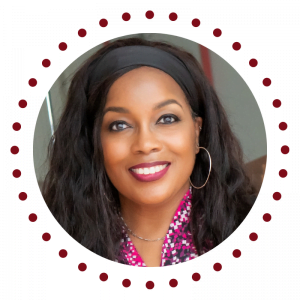
Want Karan to be Your Podcast Guest?
- Blended Workforces & the Gig Economy
- Critical Execution Tactics of High-performing Leaders
- Entrepreneurism & Leading Your Business
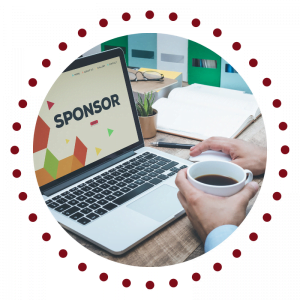
Want to be a Podcast Sponsor?
All sponsorships come with a featured spot on show notes pages.
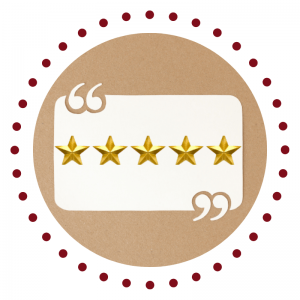
Like the Show? Please Leave a Review
If you like the show, it would mean the world to her if you left a quick review.
Your word is golden, so a HUGE thank you in advance!

#KeepInTouch
via our podcast alerts
Subscribe now to discover why thousands of monthly listeners who are passionate about doing their best work prioritize time each week to listen to the Blended Workforces @Work podcast.
#AboutSDL
#WhereToFindUs
MAILING
4480-H South Cobb Drive
PMB 219
Smyrna, GA 30080
PHYSICAL
2121 NewMarket Parkway
Ste. 108
Marietta, GA 30067
#ContactOptions
Customer Service Email:
service@shockinglydifferent.com
Call or Text:
770-384-1103
#Office Hours
MON-FRI
8:30 AM – 6:30 PM
Weekends By Appointment

